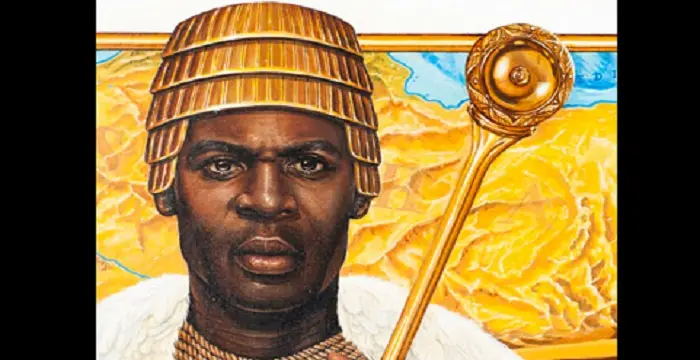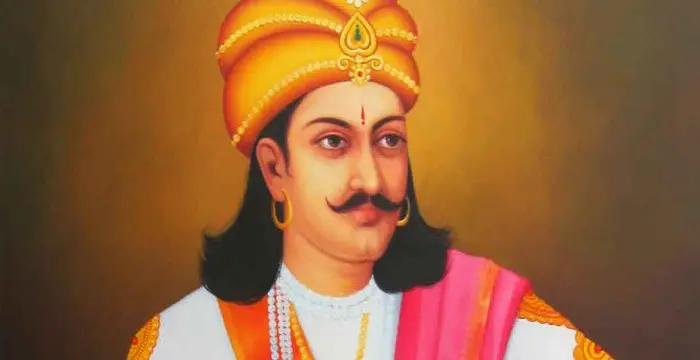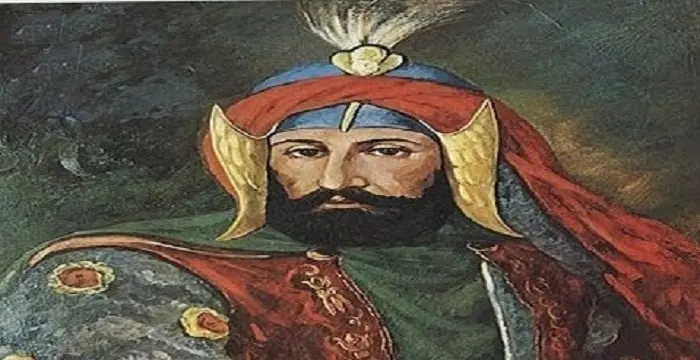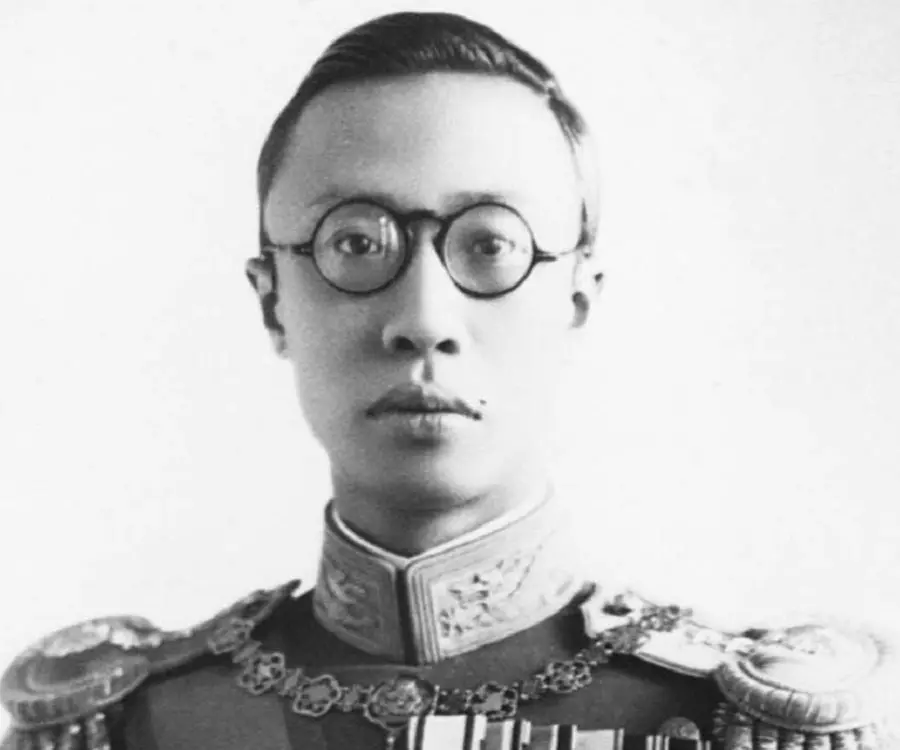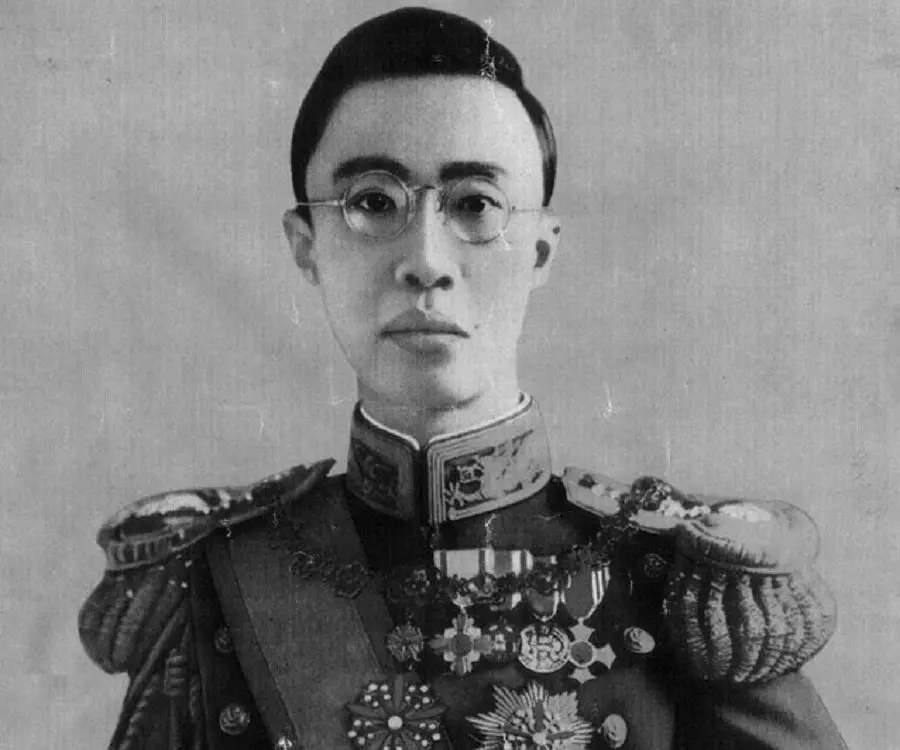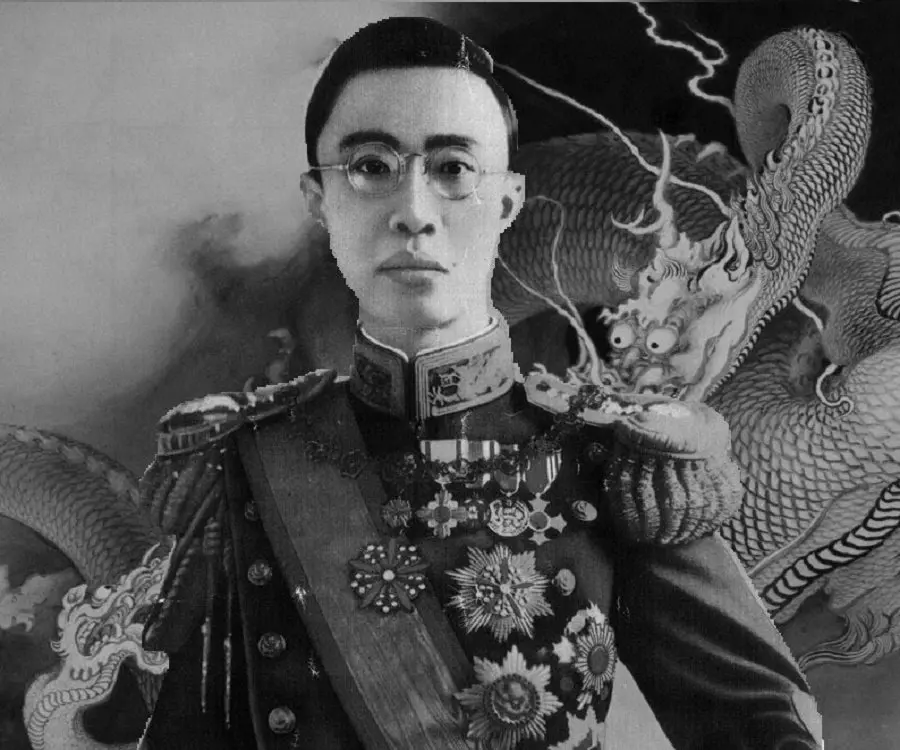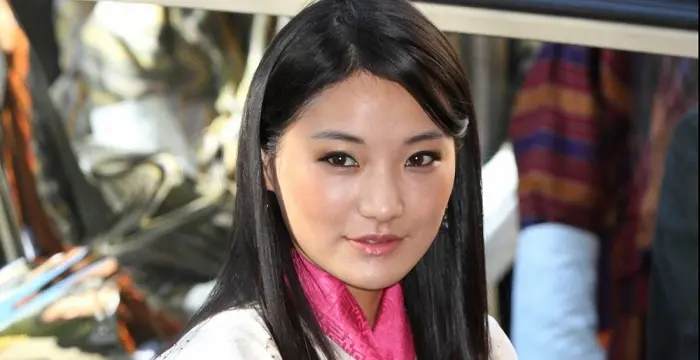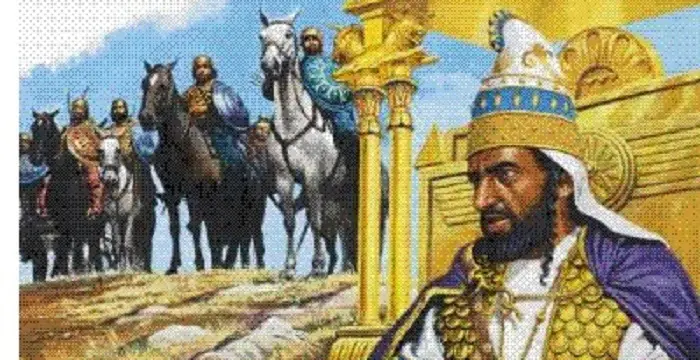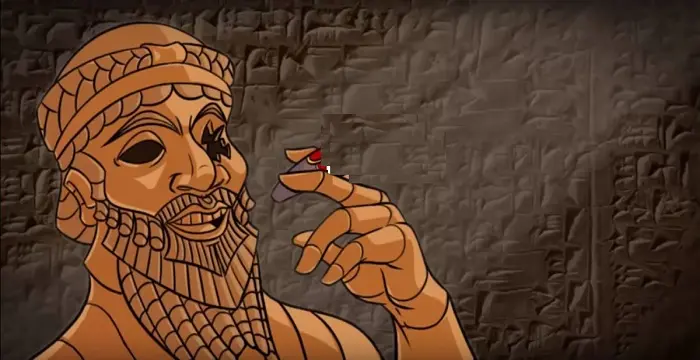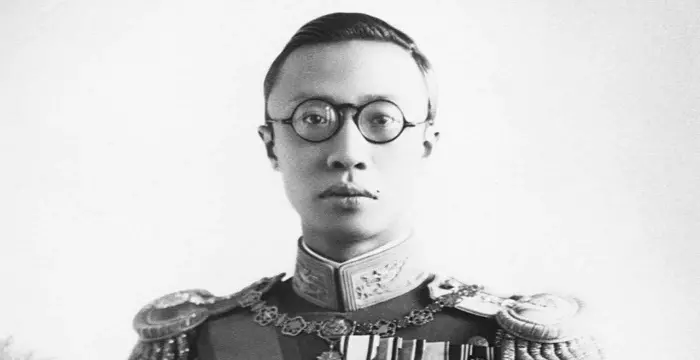
Puyi - Emperors, Facts and Life
Puyi's Personal Details
Puyi, also famous as Pu Yi, was the last Emperor of China who remained the 12th and last Emperor of the Qing Dynasty
| Information | Detail |
|---|---|
| Birthday | February 7, 1906 |
| Died on | October 17, 1967 |
| Nationality | Chinese |
| Famous | Historical Personalities, Emperors & Kings, Emperors, Kings, Last Emperor of China |
| Spouses | Empress Wanrong, Li Shuxian, Li Yuqin, Tan Yuling, Wenxiu |
| Siblings | Jin Youzhi, Jin Yunying, Pujie, Yunhuan |
| Known as | Manchu Aisin Gioro clan |
| Childrens | no value |
| Birth Place | Prince Chun Mansion, Beijing, China |
| Gender | Male |
| Father | Zaifeng, Prince Chun |
| Mother | Youlan |
| Sun Sign | Aquarius |
| Born in | Prince Chun Mansion, Beijing, China |
| Famous as | Last Emperor of China |
| Died at Age | 61 |
// Famous Kings
Sundiata Keita
Sundiata Keita was the founder of the Mali Empire in West Africa. This biography profiles his childhood, early life, struggles, founding of empire, rule, administration, achievements and also gives some fun facts.
Ashoka
Ashoka was the third emperor of the Mauryan Dynasty and ruled almost the entire Indian subcontinent. This biography profiles his childhood, life, reign, achievements and timeline
Murad IV
Murad IV was one of the mighty Sultans in the history of the Ottoman Empire. This biography profiles his childhood, family, accession, rule, administration and timeline.
Puyi's photo
Who is Puyi?
Puyi, also famous as Pu Yi, was the last Emperor of China who remained the 12th and last Emperor of the Qing Dynasty and second last Khan of Mongolia. He was hardly aged three when enthroned as emperor of Qing dynasty on the death day of his predecessor, Guangxu Emperor, in 1908 amidst a court controlled by Manchu conservatives with a growing restlessness and rebelliousness among public. His rule in China as Xuantong Emperor and in Mongolia as Khevt Yos Khan ended following ‘Xinhai Revolution’ when he was compelled to abdicate in February 1912, marking the end of both the imperial system and Qing rule of China. Qing Dynasty loyalist, General Zhang Xun, however, tried to restore him to the throne in the Manchu Restoration of 1917. Puyi left Beijing secretly in 1925 and moved to the Japanese Concession of Tianjin and from 1934 to 1945 remained the Emperor of Manchukuo, a puppet state of the Empire of Japan. Following establishment of People's Republic of China in 1949, Puyi was incarcerated for ten years as a war criminal. Later, he became member of National People's Congress and Chinese People's Political Consultative Conference.
Childhood & Early Life
Puyi was born on February 7, 1906, in Prince Chun Mansion, Beijing, Qing Empire, to Zaifeng, Prince Chun and Guwalgiya Youlan. Puyi was the great-grandson of Daoguang Emperor and grandson of Yixuan, Prince Chun.
He had three younger brothers and seven younger sisters.
Enthronement
Following the death of Guangxu Emperor (first son of Yixuan, Prince Chun) on November 14, 1908, the 2 years and 10 months old Puyi was ascended to the throne with the title of Xuantong Emperor by Empress Dowager Cixi who was on her death bed and breathed her last on the very next day.
Cixi controlled the government of China for around half-a-century as regent of her son, Tongzhi Emperor, and thereafter for Guangxu Emperor.
Puyi’s father was made the Prince Regent and on December 2, 1908, his coronation ceremony was held in the Hall of Supreme Harmony.
Little Puyi was terrified by such sudden enthronement away from his family and familiar environment, surrounded among strangers. He was accompanied by his wet nurse, Wang Wen-Chao, to the Forbidden City, the only person who could console him to certain extent.
Growing up as an emperor was way different for him from other children. The adults in his life, mostly strangers, would treat him as an emperor with men performing kowtow, a kneeling down ritual, while he passed. With time, he discovered that he could fulfil any of his whims without any restriction.
By the time he reached seven, his cruelty and love to exercise power including ill-treating and flogging innocent eunuchs and firing air-gun at anybody of his choice developed him into a sadistic boy emperor. However, the little boy in him would still love to enjoy puppet show and suckle the breasts of Wang while sleeping at night.
He received standard Confucian education and had to daily visit and report his progress to his “mothers”, five former imperial concubines led by Empress Dowager Longyu.
He disliked his “mothers” as they impeded him to meet his biological mother till he attained age 13 and particularly hated Longyu for conspiring and expelling Wang when he was aged eight on the pretext that Puyi was quite old enough to need a wet-nurse.
Forced Abdication
The ‘Xinhai Revolution’ that continued from October 10, 1911 to February 12, 1912 witnessed several revolts and uprisings resulting in the end of 2000 years of imperial rule in China and establishment of Republic of China (1912-1949).
Puyi was compelled to renounce the throne on February 12, 1912, thus making him the last emperor of Qing Dynasty that ruled China for 267 years.
A deal was brokered by Prime Minister Yuan Shikai with the regal court in Beijing and the southern China Republicans that saw endorsement of the "Imperial Edict of the Abdication of the Qing Emperor" by Longyu on February 12, 1912.
The "Articles of Favourable Treatment of the Great Qing Emperor after His Abdication" dated December 26, 1914 signed with the new Republic of China came up with certain directives.
These included allowing Puyi to retain his regal title and remain in the Forbidden City (temporarily) and then move to Summer Palace; and receiving an annual subsidy of 4,000,000 silver taels from the Republic of China, which, however, was never paid fully and was done away with after a few years.
Short-lived Restoration
General Zhang Xun made an unsuccessful attempt to restore Puyi to the throne in the Manchu Restoration of 1917 that saw Puyi enthroned from July 1 to July 12 of that year.
The period witnessed what was regarded as the first aerial bombardment in East Asia when a Republican plane dropped a small bomb over the Forbidden City.
Life in Forbidden City and Subsequent Expulsion
Puyi’s first encounter with a foreigner was with Sir Reginald Johnston, his new tutor who arrived in the Forbidden City on March 3, 1919. Johnston not only taught him different subjects but also introduced him to the "new style" Chinese books and magazines inspiring him to pen down poems that were issued anonymously in New China publications.
He was also introduced to the new technology of cinema, telephone and bicycle by Johnston. Riding cycles eventually became a lifelong passion for Puyi who was so influenced by western style that he cut off his queue and started wearing western attire instructing his eunuchs to address him as ‘Henry’.
Warlord Feng Yuxiang took control of Beijing on October 23, 1924 in a coup d’état. Yuxiang then unilaterally revised the Articles of Favourable Treatment on November 5, 1924 not only repealing the regal title and privileges enjoyed by Puyi. It not only made him to just a private citizen of the Republic of China but also expelled him from Forbidden City.
Living in Tianjin
Following the expulsion, Puyi stayed at his father’s residence for a few days and then at the Japanese embassy in Beijing before leaving for the Japanese Concession of Tianjin on February 23, 1925.
Ruler of Manchukuo
The Japanese made him the Chief Executive of a puppet state of the Empire of Japan called Manchukuo on March 1, 1932 with the reign title Datong.
On March 1, 1934 he was declared Kangde Emperor of Manchukuo. He ruled the state till August 15, 1945, till the end of Second Sino-Japanese War.
During this reign, Yoshioka Yasunori, a senior staff officer of Kwantung Army, was designated to Puyi as Attaché to the Imperial Household in Manchukuo. Yasunori spied for Japanese government and directed and controlled Puyi by intimidating and frightening him. Puyi faced several life attempts during this period.
Later Life
Soviet Union occupied Manchuria defeating Kwantung Army in August 1945 and following the end of Second World War, as Puyi was fleeing to Japan in an aeroplane, Soviet Red Army captured him on August 16.
After the Mao Zedong led Chinese Communist Party came to power in 1949 establishing People's Republic of China, negotiations between China and Soviet Union led to the repatriation of Puyi to China where he remained incarcerated for ten years as a war criminal until he was declared reformed.
He served Chinese People's Political Consultative Conference from 1964 till his death as an editor for its literary department drawing a monthly salary of around 100 yuan.
His autobiography ‘From Emperor to Citizen’ (1964) was ghost-written by Li Wenda.
Personal Life & Legacy
On November 30, 1922, he married Wanrong who became the Empress consort of Puyi. His other concubines were Consort Wenxiu, Tan Yuling, Li Yuqin and Li Shuxian, of whom the latter was a hospital nurse whom he married at age 56 on April 30, 1962.
He succumbed to complications from heart disease and kidney cancer on October 17, 1967.
// Famous Emperors
Sundiata Keita
Sundiata Keita was the founder of the Mali Empire in West Africa. This biography profiles his childhood, early life, struggles, founding of empire, rule, administration, achievements and also gives some fun facts.
Ashoka
Ashoka was the third emperor of the Mauryan Dynasty and ruled almost the entire Indian subcontinent. This biography profiles his childhood, life, reign, achievements and timeline
Murad IV
Murad IV was one of the mighty Sultans in the history of the Ottoman Empire. This biography profiles his childhood, family, accession, rule, administration and timeline.
Puyi biography timelines
- // 7th Feb 1906Puyi was born on February 7, 1906, in Prince Chun Mansion, Beijing, Qing Empire, to Zaifeng, Prince Chun and Guwalgiya Youlan. Puyi was the great-grandson of Daoguang Emperor and grandson of Yixuan, Prince Chun.
- // 14th Nov 1908Following the death of Guangxu Emperor (first son of Yixuan, Prince Chun) on November 14, 1908, the 2 years and 10 months old Puyi was ascended to the throne with the title of Xuantong Emperor by Empress Dowager Cixi who was on her death bed and breathed her last on the very next day.
- // 2nd Dec 1908Puyi’s father was made the Prince Regent and on December 2, 1908, his coronation ceremony was held in the Hall of Supreme Harmony.
- // 12th Feb 1912Puyi was compelled to renounce the throne on February 12, 1912, thus making him the last emperor of Qing Dynasty that ruled China for 267 years.
- // 12th Feb 1912A deal was brokered by Prime Minister Yuan Shikai with the regal court in Beijing and the southern China Republicans that saw endorsement of the "Imperial Edict of the Abdication of the Qing Emperor" by Longyu on February 12, 1912.
- // 26th Dec 1914The "Articles of Favourable Treatment of the Great Qing Emperor after His Abdication" dated December 26, 1914 signed with the new Republic of China came up with certain directives.
- // 1917General Zhang Xun made an unsuccessful attempt to restore Puyi to the throne in the Manchu Restoration of 1917 that saw Puyi enthroned from July 1 to July 12 of that year.
- // 3rd Mar 1919Puyi’s first encounter with a foreigner was with Sir Reginald Johnston, his new tutor who arrived in the Forbidden City on March 3, 1919. Johnston not only taught him different subjects but also introduced him to the "new style" Chinese books and magazines inspiring him to pen down poems that were issued anonymously in New China publications.
- // 30th Nov 1922 To 30th Apr 1962On November 30, 1922, he married Wanrong who became the Empress consort of Puyi. His other concubines were Consort Wenxiu, Tan Yuling, Li Yuqin and Li Shuxian, of whom the latter was a hospital nurse whom he married at age 56 on April 30, 1962.
- // 23rd Oct 1924 To 5th Nov 1924Warlord Feng Yuxiang took control of Beijing on October 23, 1924 in a coup d’état. Yuxiang then unilaterally revised the Articles of Favourable Treatment on November 5, 1924 not only repealing the regal title and privileges enjoyed by Puyi. It not only made him to just a private citizen of the Republic of China but also expelled him from Forbidden City.
- // 23rd Feb 1925Following the expulsion, Puyi stayed at his father’s residence for a few days and then at the Japanese embassy in Beijing before leaving for the Japanese Concession of Tianjin on February 23, 1925.
- // 1st Mar 1932The Japanese made him the Chief Executive of a puppet state of the Empire of Japan called Manchukuo on March 1, 1932 with the reign title Datong.
- // 1st Mar 1934 To 15th Aug 1945On March 1, 1934 he was declared Kangde Emperor of Manchukuo. He ruled the state till August 15, 1945, till the end of Second Sino-Japanese War.
- // Aug 1945Soviet Union occupied Manchuria defeating Kwantung Army in August 1945 and following the end of Second World War, as Puyi was fleeing to Japan in an aeroplane, Soviet Red Army captured him on August 16.
- // 1949After the Mao Zedong led Chinese Communist Party came to power in 1949 establishing People's Republic of China, negotiations between China and Soviet Union led to the repatriation of Puyi to China where he remained incarcerated for ten years as a war criminal until he was declared reformed.
- // 1964He served Chinese People's Political Consultative Conference from 1964 till his death as an editor for its literary department drawing a monthly salary of around 100 yuan.
- // 1964His autobiography ‘From Emperor to Citizen’ (1964) was ghost-written by Li Wenda.
- // 17th Oct 1967He succumbed to complications from heart disease and kidney cancer on October 17, 1967.
// Famous Historical Personalities
Sundiata Keita
Sundiata Keita was the founder of the Mali Empire in West Africa. This biography profiles his childhood, early life, struggles, founding of empire, rule, administration, achievements and also gives some fun facts.
Ashoka
Ashoka was the third emperor of the Mauryan Dynasty and ruled almost the entire Indian subcontinent. This biography profiles his childhood, life, reign, achievements and timeline
Jetsun Pema
Jetsun Pema is the Queen consort of Bhutan. Check out this biography to know about her childhood, family life, achievements and fun facts about her life.
Murad IV
Murad IV was one of the mighty Sultans in the history of the Ottoman Empire. This biography profiles his childhood, family, accession, rule, administration and timeline.
Xerxes I
Xerxes I (Xerxes the Great) was the fourth and the most famous king of the Archaemenid dynasty of Persia. This biography profiles his childhood, family, personal life, life history, achievements, campaigns, administration, death and other facts.
Sargon of Akkad
Sargon of Akkad, also called ‘Sargon the Great’, ‘Sarru-Kan’ and ‘Shar-Gani-Sharri’, was the founder and first king of the Akkadian Empire. This biography profiles his childhood, life, rule, administration, timeline, and gives some fun facts.
Puyi's FAQ
What is Puyi birthday?
Puyi was born at 1906-02-07
When was Puyi died?
Puyi was died at 1967-10-17
Where was Puyi died?
Puyi was died in Beijing
Which age was Puyi died?
Puyi was died at age 61
Where is Puyi's birth place?
Puyi was born in Prince Chun Mansion, Beijing, China
What is Puyi nationalities?
Puyi's nationalities is Chinese
Who is Puyi spouses?
Puyi's spouses is Empress Wanrong, Li Shuxian, Li Yuqin, Tan Yuling, Wenxiu
Who is Puyi siblings?
Puyi's siblings is Jin Youzhi, Jin Yunying, Pujie, Yunhuan
Who is Puyi childrens?
Puyi's childrens is no value
Who is Puyi's father?
Puyi's father is Zaifeng, Prince Chun
Who is Puyi's mother?
Puyi's mother is Youlan
What is Puyi's sun sign?
Puyi is Aquarius
How famous is Puyi?
Puyi is famouse as Last Emperor of China
